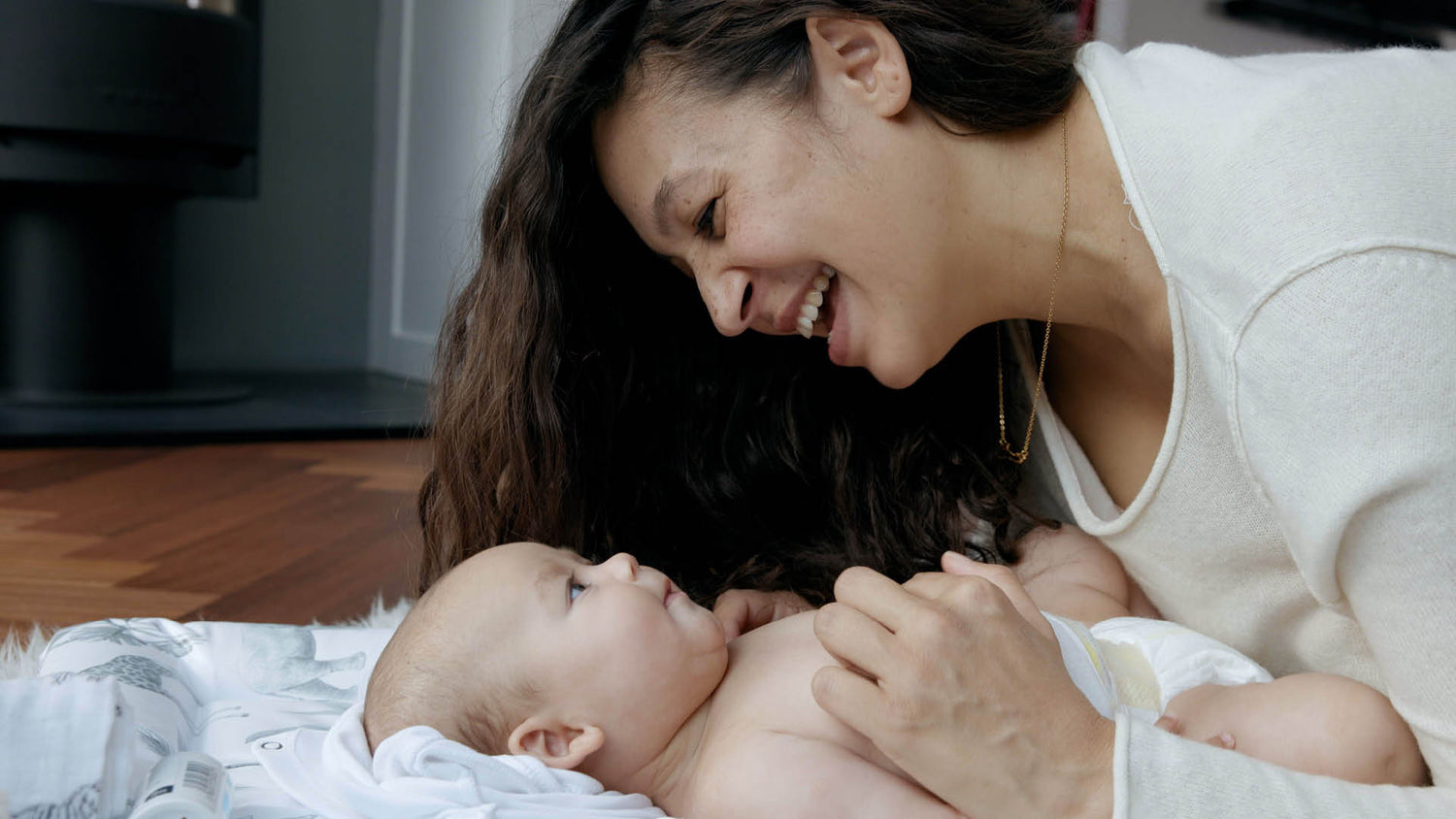Newborn babies can’t talk, and it may seem impossible to understand their cries. Yet, babies have powerful ways to communicate with us and, while we may not always feel it to start with, our own instincts are there to help us to understand them.
Why is my baby crying?
Crying is always some form of communication. The old-fashioned theory that babies need to be left to cry to exercise their lungs has been completely debunked. Just like their kidneys, brain and liver, a healthy baby’s lungs will work perfectly well, and letting them cry for this reason does nothing but harm to their health. In fact, leaving babies to cry is leaving an extremely vulnerable little person in distress and alone, something we would never do to an older vulnerable person.
It’s very common in films and on TV to see parents standing over a crib with a crying baby in it, wretchedly going over and over ‘the list’. “She’s clean, she’s dry, she’s fed, she’s not too hot and not too cold… what else could it be?” In many cases, it’s because she’s not in your arms, and that’s where most babies need to be, most of the time.
If a baby is fed, clean and cuddled and still in distress, have you checked them from top to bottom for anything that might be causing pain? Is there a rash, a sore area or a bruise? Is your baby reaching for somewhere that hurts them? Their ear, for instance? Have you checked each finger and toe for hair ligatures (where a hair gets tightly wound)? Are they teething? What does your instinct say? Do you think they’re well, or do you feel they need medical attention?
Making a rod for your own back
You will NOT spoil your baby by picking up your baby. You will NOT ‘make a rod for your own back’ by holding your baby. Every one of us is descended from babies who cried to be carried, because those who didn’t, those who lay happily alone on the savannah or in the jungle were eaten by tigers, lions or wolves. Those babies of our ancestors who had the instinct to scream for their lives went on to grow up and have their own children who also carried that instinct. Babies now may not be at risk of dangerous predators, but they still have the instinct that being left alone is deadly.
This instinct only lasts until they’re more independent, so picking up your baby only teaches them that you love them, and you’ll be there for them so that, when they are ready to start to explore the world away from you, they know that you are a person that they can trust to be there when they come back (even if they only go a few feet away to start with!).
We now know that babies whose parents respond to their need to be held grow up to be more self-confident and secure than those who were left to cry. For many of us, our instinct is to hold our babies, even though we’re told we’ll spoil them. The instinct is there for a reason! So go ahead, cuddle your baby and then cuddle them some more.
He can’t be hungry again
It is a great tragedy of our time that scheduled feeds are still sometimes being taught as the way to feed babies.
Before birth, babies never feel hunger. Continuously fed through their umbilical cord, your baby floated inside you, oblivious to the idea that they would ever have to wait for the pain and discomfort of hunger to be taken away. Babies don’t understand clocks, or waiting, or schedules. They only understand the distress of a hungry tummy. Babies have tiny stomachs which need milk little and often, and yes, they often do need to be fed again!
How many of our mothers and grandmothers have said to us, “Well, of course, you were on a 3 hour/4 hour feeding schedule by the time you were a week old/4 weeks old/etc. But then my milk dried up and I had to bottle feed you.” Removing milk by breastfeeding or expressing tells our breasts to make even more milk. Putting babies onto a feeding schedule can lower our milk supply, sometimes enough to stop breastfeeding from working at all.
It is completely normal for babies to want to be fed little and often, or even a lot and often! Breastfed babies also love to suckle at the breast if they’re not hungry. This helps our milk supply, so is very beneficial and normal. They’re not using us as a dummy/pacifier, the dummy or pacifier is being used as a breast!
Summary
Although babies can’t use words, they can communicate, and our instincts are there to help us to hear what they’re trying to say to us. We are told lots of things that can override our instincts but, in the end, we know our babies better than anyone, and it’s ok to do what feels right for us!








